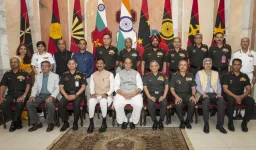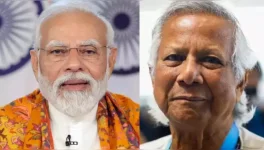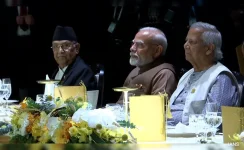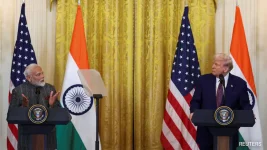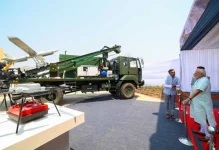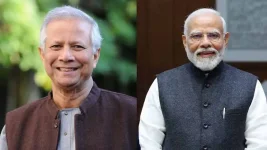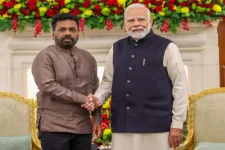India’s prime minister urged Bangladesh’s interim leader to avoid rhetoric that mars bilateral relations during their first meeting on Friday since the ouster of Bangladeshi premier Sheikh Hasina, India’s foreign ministry said.
Relations between the South Asian neighbours, which were robust under Hasina, have deteriorated since she fled the country last August in the face of massive student-led protests and sought shelter in India.
Muhammad Yunus, a Nobel Peace Prize winner who took over as the chief adviser of an interim government in Dhaka after Hasina’s exit, met Indian Prime Minister Narendra Modi on Friday on the fringes of the BIMSTEC summit in Bangkok.
“Prime Minister (Modi) urged … that any rhetoric that vitiates the environment is best avoided,” India’s foreign secretary Vikram Misri told reporters.
“(Modi) reiterated India’s support for a democratic, stable, peaceful, progressive and inclusive Bangladesh,” Misri said, adding that the Indian leader had also stressed New Delhi’s desire for “a positive and constructive relationship with Bangladesh based on a spirit of pragmatism”.
Public opinion in Bangladesh has turned against India, in part over its decision to provide sanctuary to Hasina. New Delhi has not responded to Dhaka’s request to send her home for trial.
‘ATROCITIES’
Both leaders discussed Bangladesh’s request seeking Hasina’s extradition, Misri said, without elaborating further.He also said Modi had asked Yunus to help maintain border security and stability, and expressed his hope that Bangladesh would thoroughly investigate all cases of “atrocities” committed against people from minority groups, including Hindus.
India has repeatedly urged Bangladesh to protect its minority Hindus, saying they were being targeted in the Muslim-majority country since Yunus took charge. Dhaka says the violence has been exaggerated and is not a communal issue.
“The hope would be that this meeting would start the process of rebuilding some engagement,” said Harsh Pant, foreign policy head at the Observer Research Foundation, an Indian think-tank.
“I think at this point, simply stabilising the relationship perhaps should be the priority.”
With longstanding cultural and business ties, the two nations share a 4,000 km (2,500 mile) border. India also played a key role in the 1971 war with Pakistan that led to the creation of Bangladesh.
Modi and Yunus met on the sidelines of a summit in Bangkok of BIMSTEC, or the Bay of Bengal Initiative for Multi-Sectoral Technical and Economic Cooperation, a grouping that also includes Thailand, Myanmar, Nepal, Sri Lanka and Bhutan.

